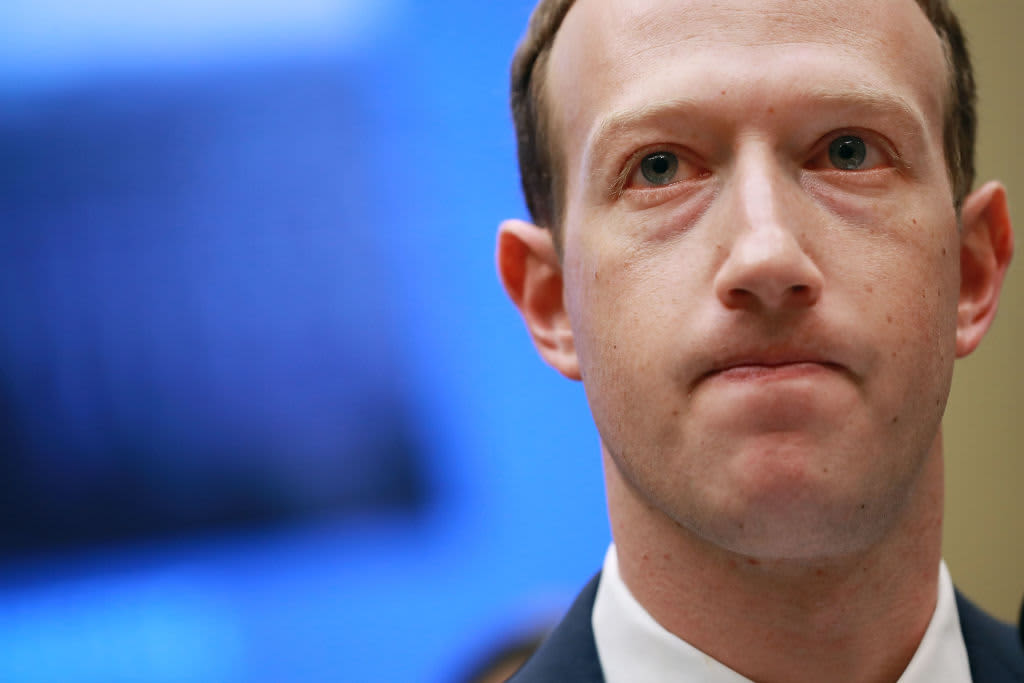
Mark Zuckerberg testifies before the House Energy and Commerce Committee in the Rayburn House Office Building on Capitol Hill April 11, 2018.
Chip Somodevilla | Getty Images
Facebook on Wednesday reported its fourth-quarter earnings with a new metric that showed that the company still relies almost entirely on its core app to generate revenue.
For the first time ever, Facebook disclosed the average revenue per user across its monthly user base for its so-called family of apps, which includes users of the core Facebook app as well as Instagram, Messenger and WhatsApp.
The new metric did not help the company's case with investors. The company's stock price fell more than 7% in after-hours trading, as investors digested a big increase in expenses in 2019.
Average revenue per person for the whole family of apps came in at $7.38 per user, while ARPU for the core Facebook app was $8.52 for the quarter. The company said that an average of 2.89 billion people used the family of apps each month, while an average of 2.50 billion used the Facebook app.
The more than $1 ARPU difference between the family of apps and the core app highlights what many already suspected: the company's original Facebook product -- sometimes called the "big blue app" -- is the main thing keeping the lights on.
If the rest of the Facebook family members were contributing meaningfully to the top line, the family of apps ARPU would be greater, not less, than its core app ARPU.
The new family of apps ARPU metric will be a key figure for investors to keep an eye on, but the revelation is hardly surprising.
Each quarter, Facebook also breaks out how much of its revenue comes from advertising versus "other," and each quarter, advertising typically accounts for more than 98% of revenue, if not more.
Facebook has experimented with a number of ways that its other apps can contribute to revenue, but so far, it hasn't had much success. Although there is a thriving advertising ecosystem on Instagram, Messenger and WhatsApp have accomplished little.
The company added its Stories features to the two messaging apps. On Messenger at least, there are ads in Stories, but it's unclear just how often people are opening that feature and looking at the ads. On WhatsApp, the company is focused on building features so businesses can communicate with users, but those efforts are still developing. The company had talked about adding ads to WhatsApp, but it recently abandoned those efforts, according to a January Wall Street Journal report.
As for Facebook's Oculus and Portal devices, the hardware products are not even counted among the company's family of apps metrics, and Facebook has never shared sales figures for either, giving little confidence that those efforts will contribute meaningfully anytime soon.
Core Facebook grows each and every quarter, but it's time for the company's other family members to start earning their keep.
No comments:
Post a Comment